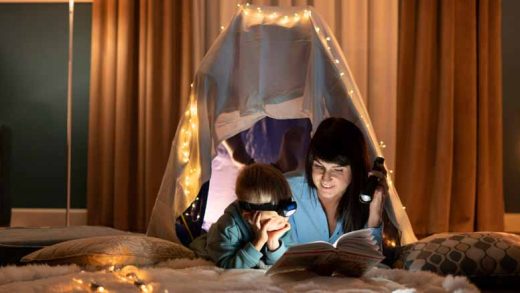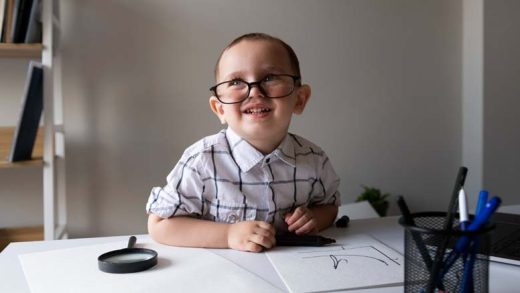Early childhood education is more than simply colouring books and playing. A preschool is a magical place where young brains start their unique journey of discovery. It is the fertile ground where those years of development take root and grow into magnificent flowers. For children to have a great future, preschool is essential.
Preschool teaches children to share and form friendships via enjoyable activities and playtime. Additionally, preschool children learn letters, numbers, and colours to prepare for school. Preschool creates routines for them and teaches children responsibility and rule-following. They may express themselves in safety there.
The importance of preschool education is explored in the next section, along with the secrets of its transformative impact on children of all ages.
How can a parent evaluate if their kid is prepared for preschool?
The following are some signs that parents may look for to see if their kid is ready to attend preschool:
Top 12 reasons why your child needs to go to preschool?
The following are the importance of preschool education:
- Opportunity for Development:
- Kindergarten Readiness:
- Social and Emotional Development:
- Structured Environment:
- Freedom of Choice:
- Cooperation and Self-Care:
- Preparation for School Behaviours:
- Language Development:
- Curiosity and Imagination:
- Pre-math and Literacy abilities:
- Exposure to Variety:
Preschool exposes kids to structured environments, encouraging collaboration, memorising facts, and developing abilities necessary for future schooling.
Kids gain the fundamental skills they need to succeed in school by combining play-based learning with academic preparation.
Good preschools promote positive relationships between kids, instructors, and parents, which builds confidence and a sense of security. Learners help learners develop empathy, handle conflict, and control their emotions.
While preschools may not seem like much, they provide an organised setting that promotes social engagement, reduces noise and disturbances, and supports efficient learning.
Giving kids the ability to choose helps them develop their independence and decision-making abilities. Teachers help kids in choosing interests and incorporate learning into their lessons.
Kids learn to care for others and themselves in preschool, which helps them feel competent and valuable. Kids pick up good habits, practice self-hygiene, and participate in classwork.
Children learn fundamental classroom behaviours like paying attention, listening, and taking turns through group activities like circle time, which lays the foundation for effective learning experiences.
Preschools offer a grammatically rich atmosphere where kids may grow in vocabulary and sentence construction.
Teachers foster their students’ curiosity by promoting active participation, inquiry, and investigation. Playing pretend helps with social and cognitive development while inspiring the imagination.
Activities that help kids prepare for future academic challenges include telling stories, playing matching games, and singing alphabet songs. These activities also help children acquire early math and literacy abilities in a meaningful way.
Playing with classmates from different backgrounds in preschool promotes tolerance, acceptance, and awareness of different cultures.
12. Parental help: To promote partnerships in the education and development of their kids, preschools often provide parents with resources and support.
Methods for getting a kid ready for preschool
A child needs psychological preparations and emotional assistance to make getting used to preschool smoother. This is how it has been done:
- Visit the Preschool:
- Talk About Preschool:
- Set Up a Routine:
- Promote Independence:
- Read Books About Preschool:
- Identify Emotions:
- Stay Positive:
- Develop a Goodbye practice:
Before your child’s first day, take them to the school to acquaint them with the setting. Take them to the play areas and classrooms, and if you can, introduce them to their teacher.
Tell your kids what to expect and what preschool is about. Tell them you will be returning to pick them up and talk about all the wonderful things they will do and the friends they will make. Through innovative educational approaches, Kangaroo Kids International School offers an encouraging environment where kids can succeed and achieve their full potential.
Start a daily schedule patterned around the preschool curriculum. This might involve having designated wake-up, mealtime, and nap hours. A consistent schedule gives kids a sense of security and prepares them for the formalities of preschool.
Instruct your kids in fundamental self-care techniques, including dressing independently, using bathroom facilities, and hand washing. Their confidence grows, and they are encouraged to be independent.
Pick kid-friendly novels that favourably present preschool life. Anxiety can be reduced, and excitement can be generated by reading stories about starting school.
Help your kid identify and express their feelings about beginning preschool. Tell them by telling them it is natural to have a range of feelings, including anxiety, excitement, and sadness.
Remain positive about preschool and promote the benefits of preschool and educational possibilities. Your excitement will increase your child’s sense of security and excitement.
Choose a brief goodbye schedule for preschool drop-offs. As usual, follow through on your promises to return, and keep it short, relaxing, and comforting.
To sum up, educating your child for preschool involves making them feel secure and at home. You may attend preschool, establish a schedule, and teach independence to ensure a smoother change. It is also important to be positive and discuss feelings. Your child might feel ready for preschool with your help, motivated to learn and make new friends.
With Kangaroo Kids International Preschool, help your kid reach their greatest potential right away! Come along on an extensive journey of development and learning.









